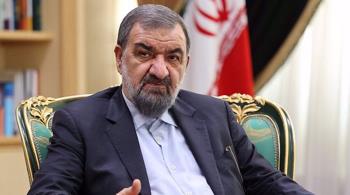Alwaght- “Think not of those who are slain in God’s way as dead. Nay, they are living, finding their sustenance in the presence of their Lord.” (Qur’an 3:169) Indeed, this verse of the holy Qur’an explains that martyrdom in the path of God is not equivalent to death, for the body may perish but the soul is immortal.
Imam Hussein bin Ali, the second imam according to Shiite Muslim tradition, sacrificed his life and family to rectify the Islamic religion which was being distorted under the tyranny of those in power. A 7th century revolutionary leader, Imam Hussein’s legacy spread after his martyrdom reaching almost every corner of the earth. Those who believed in the values of freedom and justice came to cherish and respect Imam Hussein while those who were blind to the truth failed to take the side of these freedom fighters.
Of those who were inspired by Imam Hussein’s struggle for justice is Mahatma Gandhi, preeminent leader of the Indian independence movement in British-ruled India and spiritual icon for many. Gandhi’s first Salt Satyagrah was inspired by Imam Hussain’s peaceful resistance to the tyranny of Yazid, the caliph at the time.
He writes: “My faith is that the progress of Islam does not depend on the use of sword by its believers, but the result of the supreme sacrifice of Hussain (A), the great saint.”
It is notable that Imam Hussein stood in the face of his oppressors. Although he was martyred in the Battle of Karbala, his voice resonated across distances and time. His martyrdom is commemorated to this day by millions of mourners on the day of Ashura, the tenth of the holy month of Muharram. His martyrdom is believed to symbolize the victory of sacrifice over the sword.
Winner of the Nobel Prize in Literature, Rabindranath Tagore also described Imam Hussein’s approach to the pursuit of justice as exemplary.
“In order to keep alive justice and truth, instead of an army or weapons, success can be achieved by sacrificing lives, exactly what Imam Husain did.”
Imam Hussein’s heroic endurance has also turned heads in the Western world, particularly among historians, writers, and scholars.
Charles Dickens, the English novelist, deduces from the events of Karbala that Imam Hussein had given up everything for the sake of Islam, the religion Prophet Mohammad, his grandfather had enlightened people with.
“If Husain had fought to quench his worldly desires…then I do not understand why his sister, wife, and children accompanied him. It stands to reason therefore, that he sacrificed purely for Islam,” Dickens writes.
Edward G. Brown, the professor of Arabic and oriental studies at the University of Cambridge, praises Imam Husain in the following passage:
“… a reminder of the blood-stained field of Kerbela, where the grandson of the Apostle of God fell at length, tortured by thirst and surrounded by the bodies of his murdered kinsmen, has been at anytime since then sufficient to evoke, even in the most lukewarm and heedless, the deepest emotions, the most frantic grief, and an exaltation of spirit before which pain, danger and death shrink to unconsidered trifles.” [A Literary History of Persia, London, 1919, p. 227]
Considered the greatest British historian of his time, Edward Gibbon said in The Decline and Fall of the Roman Empire that the events of Karbala that led to the beheading of the revered Imam has the power to ignite the flames of compassion even in a heart of ice.
“In a distant age and climate the tragic scene of the death of Hosein will awaken the sympathy of the coldest reader.”
Thomas Carlyle, Scottish historian and essayist, understands from the story of Karbala that the minority can be victorious over the majority.
“The best lesson which we get from the tragedy of Karbala is that Husain and his companions were rigid believers in God. They illustrated that the numerical superiority does not count when it comes to the truth and the falsehood. The victory of Husain, despite his minority, marvels me!”
Peter J. Chelkowski, Professor of Middle Eastern Studies, New York University, summarizes the events of Karbala in a few lines.
“Hussein accepted and set out from Mecca with his family and an entourage of about seventy followers. But on the plain of Kerbela they were caught in an ambush set by the … caliph, Yazid. Though defeat was certain, Hussein refused to pay homage to him. Surrounded by a great enemy force, Hussein and his company existed without water for ten days in the burning desert of Kerbela. Finally Hussein, the adults and some male children of his family and his companions were cut to bits by the arrows and swords of Yazid’s army; his women and remaining children were taken as captives to Yazid in Damascus. The renowned historian Abu Reyhan al-Biruni states; “… then fire was set to their camp and the bodies were trampled by the hoofs of the horses; nobody in the history of the human kind has seen such atrocities.” [Ta’ziyeh: Ritual and Drama in Iran, New York, 1979, p. 2]
The Battle of Karbala took place in 680 A.D. Yet, millions mourn the martyrdom of Imam Hussein to this day. The followers of Shiite Islam have been committed to ensure the remembrance of the person who sacrificed his life so that true Islam can live, and, in this remembrance, the story of Imam Hussein has spread across the world. Those who value freedom and justice have praised Imam Hussein even though there are not enough words that could do him justice.



























